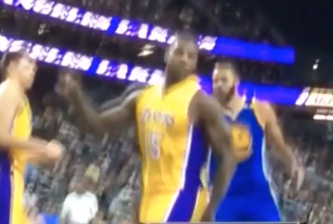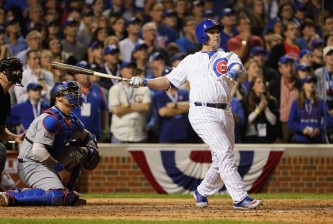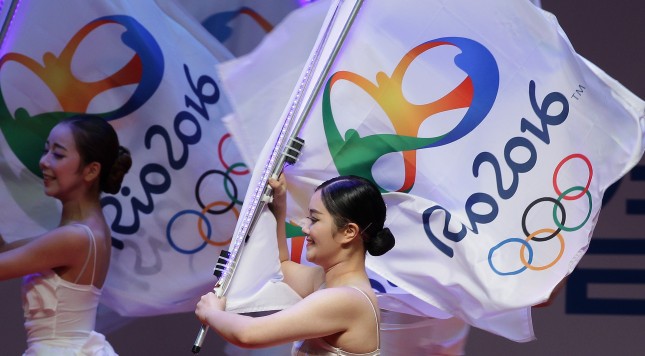With the Olympic events set to take place in Rio de Janeiro, all eyes will soon be on the competitors and their performances. With 207 nations set to compete in 306 events encompassing 28 sports, there are certainly enough events to be contested. But the Olympics may be marred by internal and external factors that could precede the competitions. While it’s still early, we took a look at the winners and losers leading up to the Olympic games in Rio.
Winners:
- NBC– Having won the bid for every Olympic competition since 1988, the network shelled out $1.23 billion for the rights to air the 2016 games. Additionally, NBC has a marketing campaign worth $100 million, producing enough ads on its network to reach every person in the U.S. at least 25 times. Having sold television advertising in excess of those amounts thus far, the games are to be considered a network success from a financial standpoint. NBC has partnered with select airports, stores, taxis and amusement parks to provide special Olympics coverage. It will also produce Spanish-language content through Telemundo and NBC Universo. In local markets, ads have been tailored to feature Olympic hopefuls with ties to individual cities in an attempt to increase viewer connections with the athletes and the games.
- Social Media- While certainly no stranger to sporting event, NBC is also planning a massive push on social media to target younger fans. While continuing to use platforms like Twitter and Instagram to report winners and losers, they are tailoring their content for different sites. NBC has partnered with BuzzFeed and social media influencers who will in turn create their own content to be shared over platforms such as Snapchat. Features that will be shared over social media include athlete interviews with Internet comedian Flula and Portuguese lessons for the athletes taught by Brazilian supermodel Alessandra Ambrosio.
- State of the Art Technology– Expanding upon a 180-degree testing at the 2016 Winter Youth Olympics, 85 hours of video content will be originated in 360-degree virtual reality formats. This content will be available exclusively to Samsung Gear VR devices. In the United States, NBC will offer 4K content, down-converted from the 8K footage and with HDR and Dolby Atmos support, to participating television providers. Since NBC currently owns the rights to every Olympics event through 2032, they are able to invest in cutting-edge technology that will enhance their viewership experience (and their bottom line) in future televised events.
Losers:
- The Brazilian Government– From a political, economic and public relations standpoint, the past year has been a disaster for Brazil. The legislature has impeached President Dilma Rousseff for financial improprieties, and her replacement has his own baggage and is equally unpopular. Street protests have been common and widespread. The country is currently in the grip of a severe economic recession, with economic shrinkage of 5.4% in the first quarter of 2016. From the government’s inability to deliver on promised infrastructure improvements for the games to several muggings at gunpoint by athletes training in and around Rio, advanced ticket sales from around the world have lagged behind expectations. Add to all of this the advent of the Zika virus (which has caused the withdrawal of many top athletes from their respective events) as well as an inability to properly treat bacteria from their waterways (where many athletes compete), and the problems that have befallen Brazil are magnified on the world stage. It is hard to believe that this is the same country that ran a very successful World Cup for FIFA just two years earlier. Based upon current estimates, there is little chance Brazil will be able to recover the costs emanating from the Olympics, even counting tourism dollars.
- Russia– Having run a less-than-stellar Winter Olympics in Sochi two years ago, we can now add “doping” to the list that the Russian federation will need to deal with. The world’s leading doping agency (WADA) has uncovered documents proving that the Russians used banned substances to enhance their athletes’ performances in 2014. In fact, several of their athletes had already been banned from competing in the Brazilian competitions. With the distinct possibility that Russia may be banned from competition this year altogether, President Putin’s response is that Russia may pull out of competition altogether while he “investigates” these claims. It would seem hard to disprove all of them, given that 95 doping samples from 95 athletes contained banned substances, however. With all of this as a backdrop, it’s good to know that the 2018 FIFA World Cup event will be held in, yes, you guessed it, Russia.
- The Amateur Athletes– While much publicity is placed upon the “professional” competing athletes like Neymar of Brazil (soccer), Carmelo Anthony and Kevin Durant (basketball) and Novak Djokovic (tennis), most of the athletes that compete in the Olympics are true amateurs in the true spirit of the games. They receive scant, if any, financial support from their host country, and often train while working full-time jobs and raising families. With an athletes’ career short, they train daily for their one chance at glory. While a handful of Olympic athletes are able to cash in on their new-found fame, most return home to a life of obscurity following their competitions. In extreme cases like the Soviet boycott of the 1984 Olympics, these athletes never saw their dreams fulfilled. Should Russia withdraw from these Olympics altogether (whether justified or otherwise) or the games be marred by events unrelated to athletic competition (such as street violence related to Brazil’s current situation), these athletes may have lost their window of opportunity that they’ve trained so hard for. The original Olympics were meant to transcend politics, but in today’s world, sadly that is no longer a reality.























